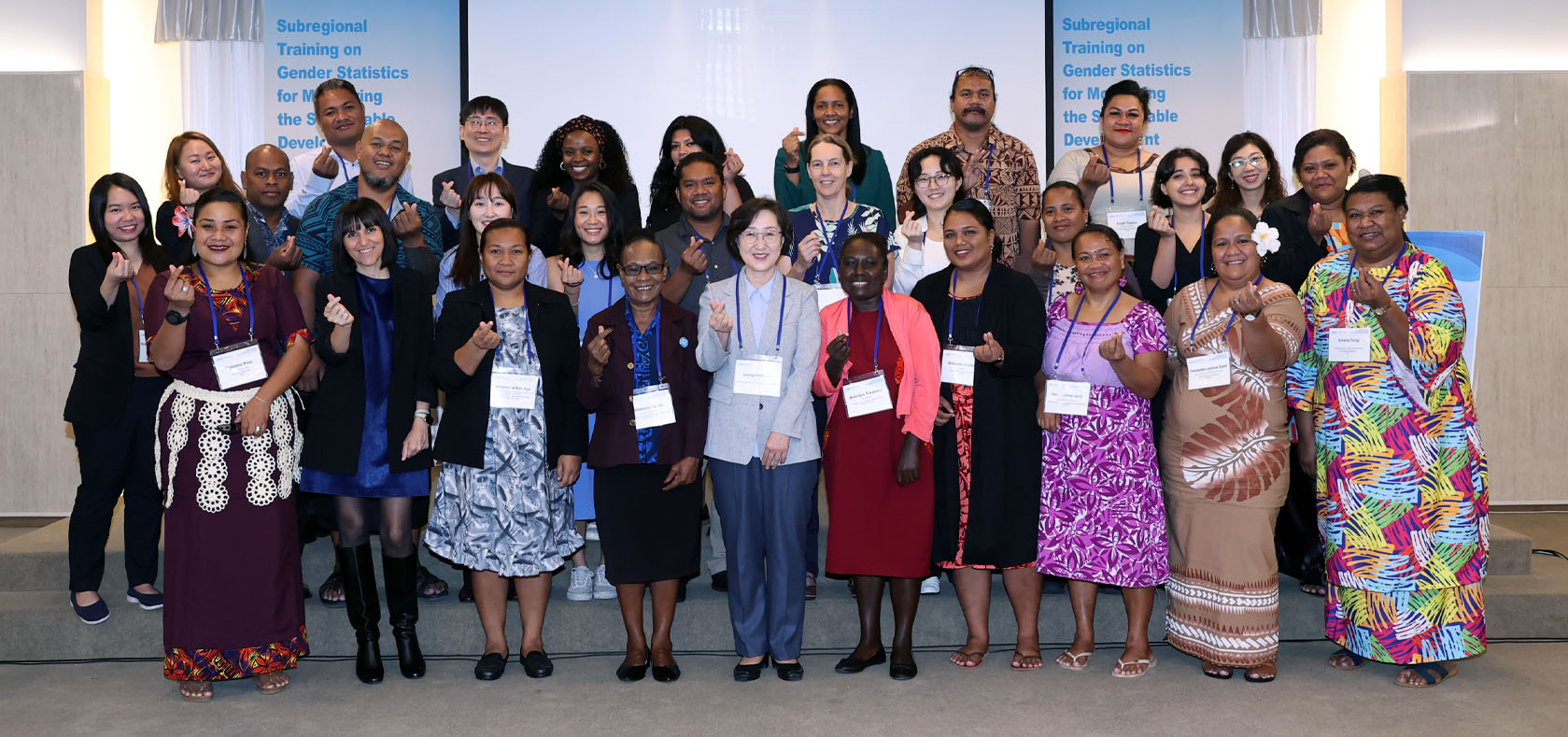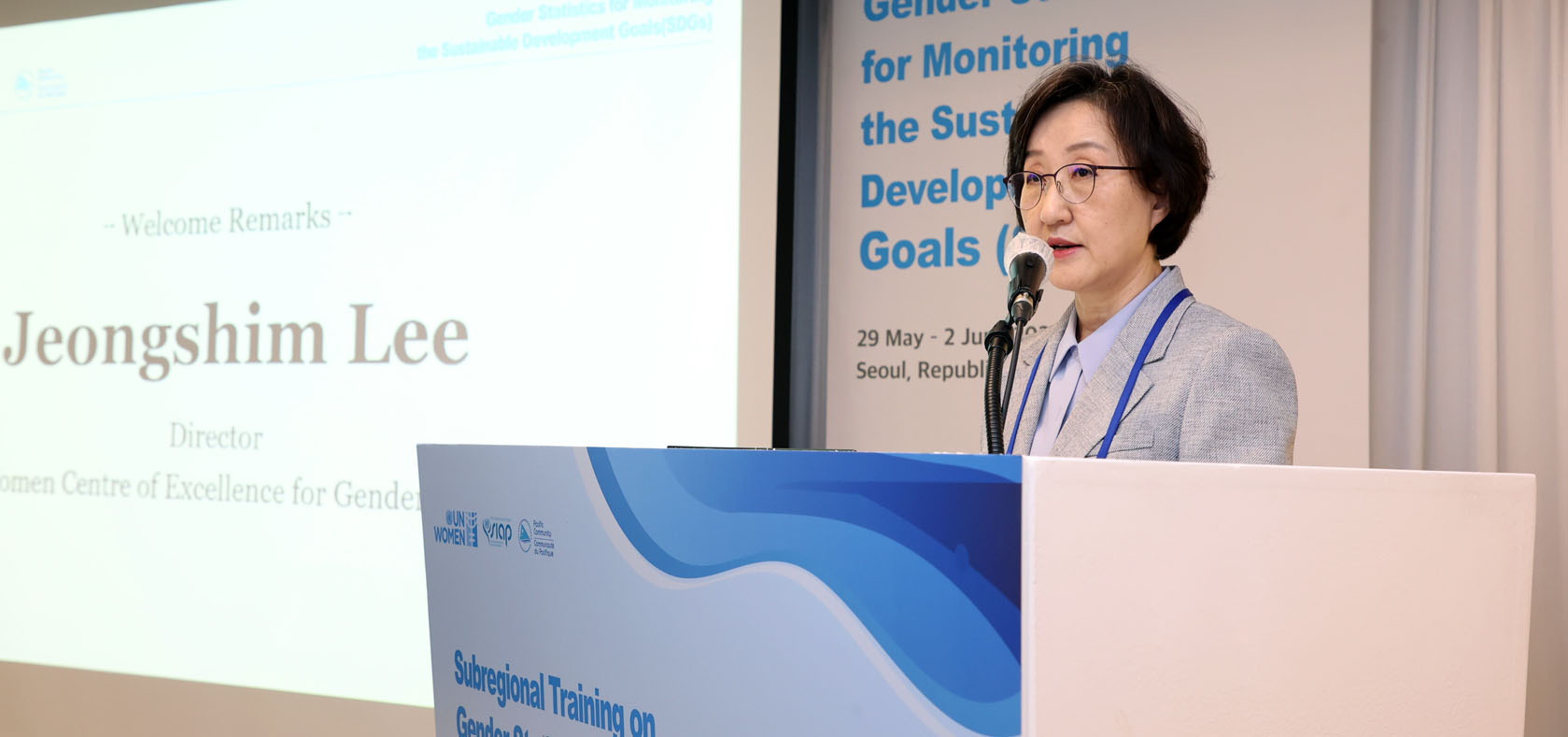[Press release]
English | 한국어

UN Women Centre of Excellence for Gender Equality gathered 30 government representatives from the Pacific Island Countries for training on producing and using gender data to advance gender equality. Photo: UN Women Centre of Excellence for Gender Equality
Seoul, Republic of Korea — UN Women Centre of Excellence for Gender Equality gathered 30 government representatives from the Pacific Island Countries for training on producing and using gender data to advance gender equality.
"According to the recent SDG Progress Report published by UN Women, only 47 per cent of the data needed to monitor progress on SDG 5, which is on gender equality, is available," Centre Director Jeongshim Lee said in her opening remarks. "We need to redouble our efforts to invest in high-quality data production and analysis to formulate evidence-based, gender-responsive policies."
Jointly organized by the United Nations Statistical Institute for Asia (SIAP) and the Pacific and The Pacific Community, the training was attended by representatives from national statistics offices and ministries responsible for gender equality from Papua New Guinea, Fiji, Solomon Islands, Vanuatu, Palau, Federate States of Micronesia, Nauru, Kiribati, Tuvalu, Samoa, Tonga, and Cook Islands.

"According to the recent SDG Progress Report published by UN Women, only 47 per cent of the data needed to monitor progress on SDG 5, which is on gender equality, is available," Centre Director Jeongshim Lee said in her opening remarks. Photo: UN Women Centre of Excellence for Gender Equality
Through the training, participants enhanced their capacity to effectively produce gender data for policymaking by strengthening the dialogue and collaboration between users and producers of gender data.
The training used the Gender Statistics Training Curriculum, which was jointly developed by UN Women and SIAP. It included a combination of theory and discussion sessions and hands-on and practical exercises: using gender data for monitoring the Sustainable Development Goals (SDGs), enhancing gender data literacy, analysing gender data, improving gender data collection, communicating gender data, and constructing policy briefs.
Statistics Korea also participated and contributed to the training by sharing the Republic of Korea’s implementation status of SDG indicators from a gender perspective, its experience in producing sex-disaggregated statistics as part of its gender mainstreaming policy, and examples of the legal and institutional measures for gender-responsive policies.
"As gender equality is a cross-cutting goal related to all 17 goals, not just confined to SDG 5, there is an urgent need to produce statistics to measure gender equality aspects in various social and environmental areas, such as widening inequalities during the COVID-19 and the on-going climate change crisis," said Youngshil Park, deputy director of the Statistics Research Institute of the Statistics Korea, who also served as the member of the United Nations Inter-Agency and Expert Group on SDG Indicators.
Sara Duerto Valero, UN Women’s regional advisor on gender statistics for Asia and the Pacific, added that the “training supports the Pacific countries to implement the Pacific Road Map on Gender Statistics, which aims to generate quality, relevant and timely gender data that meets users’ need to advance gender equality.”
This is the second training on gender statistics conducted by the Centre. The first training was conducted virtually in November 2022. The Centre will hold another regional training on gender statistics in October of this year to strengthen the statistical capacity of the government officials in the region. The Centre will continue to strengthen its gender statistics training and research programmes to support countries in the region to fill the gender data gap for monitoring the SDGs.

